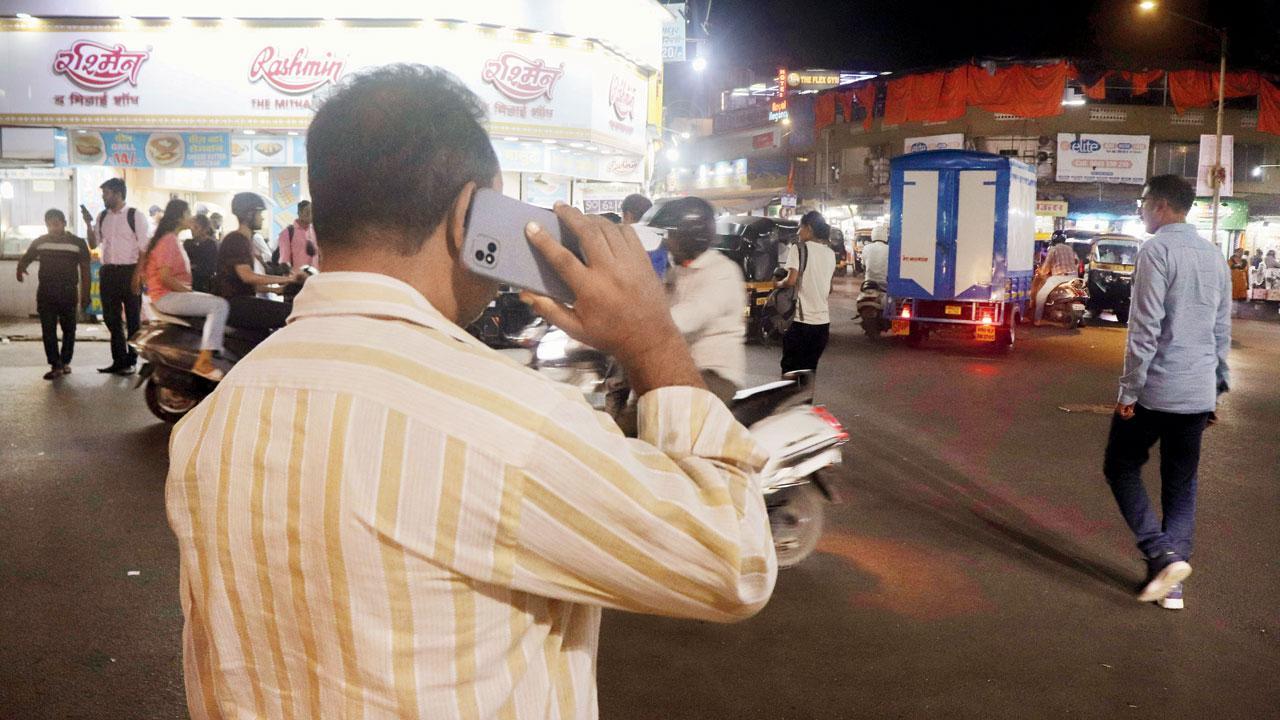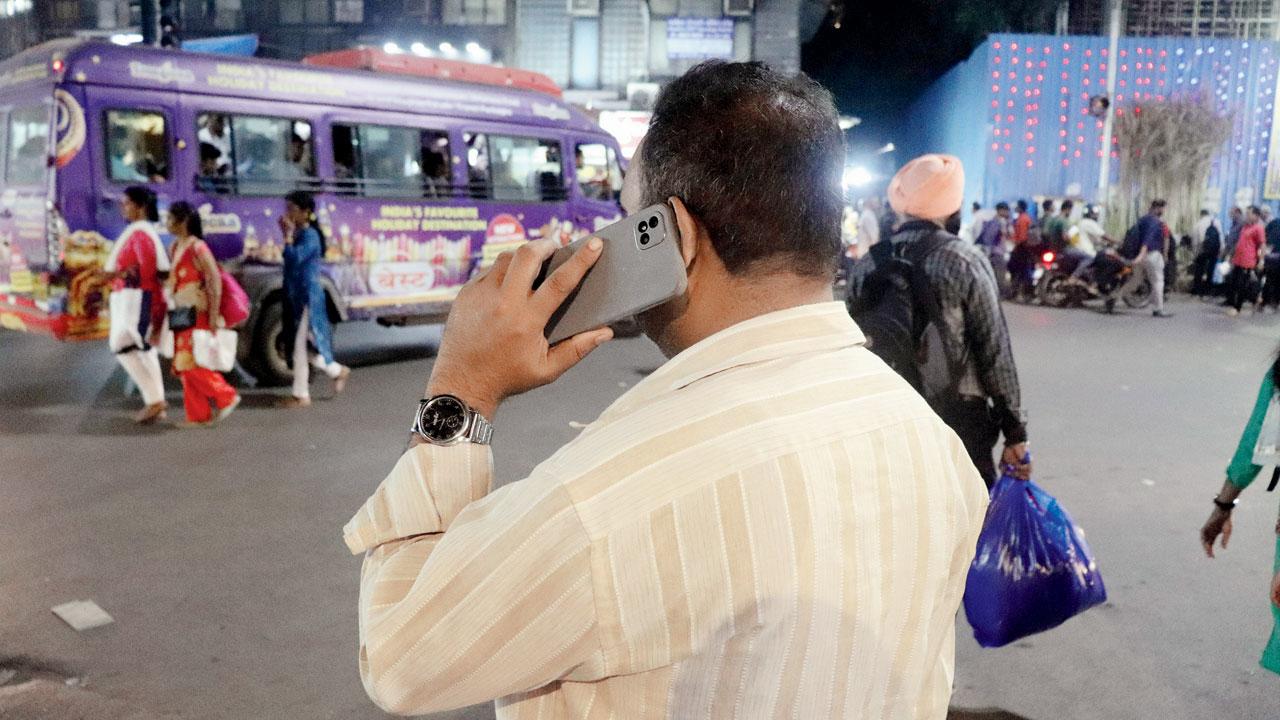Meet the khabri who has been weeding out thousands of illegal Bangladeshi immigrants from Mumbai for two decades, after being spurned by the mother of his two daughters

When his wife refused to return to India with him, the police informer brought his elder daughter with him, while the younger one stayed back. Pic/Anurag Ahire
A 45-year-old police informer, betrayed by his former wife, a Bangladeshi, has made it his life’s purpose to take revenge by sending Bangladeshis back to their country. Over the past two decades, the informer has collaborated with police across the Mumbai Metropolitan Region (MMR), facilitating the deportation of 3,500-4,000 Bangladeshis living here illegally. Notably, the informer was aiding Kurar police in apprehending a Bangladeshi citizen from Mira Road just hours before the newspaper went to press.
ADVERTISEMENT
In an exclusive meeting and conversation, the informer, who did not divulge his identity, told mid-day, “I was born and brought up in Thane city. I studied in a civic school till around Std V. My family wasn’t financially strong so I had to focus on earning a living. I run a poultry shop here and live with my wife and three children.” The informer’s career in helping deport Bangladeshi citizens began around 20 years ago, after the end of his first marriage to Saleha Begum. “I met Saleha around 25 years ago in Thane. She used to work as a dancer in a bar. We fell in love and got married. We had two daughters,” he said.
Fooled about citizenship
While Saleha was a Bangladeshi citizen, she had told the informer that she hailed from Kolkata. “Five years after our marriage, Saleha took me and our daughters across the border to meet her family in Bangladesh. I thought they were in Kolkata and had no clue about her plan,” the informer said.

The police informer earns a living through his chicken shop. Pic/Anurag Ahire
“I came to know that Saleha is Bangladeshi when we reached the border. With the help of a local agent, we crossed the border into Bangladesh. I asked Saleha how we will reach her village and she told me we will fly in a helicopter. I was very happy that I would get a chance to board a helicopter. But that didn’t happen. After some time, a person came riding on a bicycle and took us to Saleha’s village in the jurisdiction of Kolaroa police station in the Satkhira district of Bangladesh. It was around 25 minutes from the border,” the informer told mid-day. Saleha’s family, however, did not know that she was married. “Her family was furious. The news of our marriage reached the villagers and they started visiting her house. They caught hold of me and beat me brutally,” the informer said.
Held by Bangladeshi cops
“They thought I was Hindu even though I repeatedly told them I was Muslim. But they didn’t believe me so they stripped me to check and only then believed it. Still, their anger didn’t subside and they handed me to the police,” he said. The informer claimed abuse by the police too. “The police kept me in custody and beat me brutally for two days, covering my whole body in bruises. Neither Saleha nor her family visited me. The police demanded money for my release. I called my father in India and told him everything. He sold our land in 24 Parganas district of West Bengal and arranged around R5 lakh to be paid to Kolaroa police for my release,” he said.
The informer went to Saleha’s village right after his release and asked her to return with him, but she refused to come. “I returned to India with my elder daughter, while my younger daughter remained in Bangladesh. It was then that I swore not to let a single Bangladeshi stay in India,” he said. After returning to India, the informer remarried eventually. He has three children with his second wife. “My daughter who was born to Saleha is living a happy life with her husband in south India. She has two daughters,” the informer said.
‘Easy to spot Bangladeshis’
In two decades of constantly seeking Bangladeshis, the informer claims that he has gained a high level of mastery in his work. “Bangladeshis are living in different cities including Pune, Navi Mumbai, Nagpur, Nashik, Palghar, Mumbai, and Thane district. Many of them have Indian passports, Aadhaar cards, and other important documents. They also own houses and run their businesses. Some drive auto rickshaws and taxis. I have become so proficient in this work, that I can easily recognise a Bangladeshi national by their way of talking and working,” the informer said.
“I have worked with various police agencies, including Special Branch-I, local police in Mumbai, Palghar, Navi Mumbai, and Thane. I have helped the police arrest around 4,000 Bangladeshis from various areas. This also includes 21 Bangladeshis caught by Borivli police last month,” the informer said. “If Mumbai police want, I can give them a van full of Bangladeshi women every day. The government needs to make strict laws and arrangements to prevent this,” the informer said.
The informer said that a large number of Bangladeshi reside illegally in Maharashtra, Delhi and Gujarat, including those who have returned after their deportation and those out on bail after being arrested by police. He further claimed that more Bangladeshis continue to come to India. “A large number of women are engaged as domestic workers, many are engaged in prostitution,” he said.
Rs 5L
Amount informer’s father paid Bangladesh police for his release 20 years ago
4,000
Approx no of Bangladeshis deported with the informer’s help
25
Years since informer first met Saleha Begum
 Subscribe today by clicking the link and stay updated with the latest news!" Click here!
Subscribe today by clicking the link and stay updated with the latest news!" Click here!







